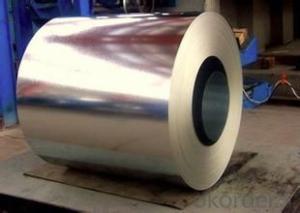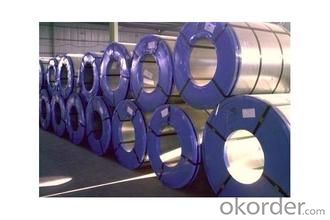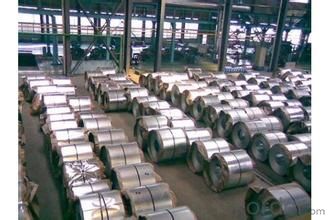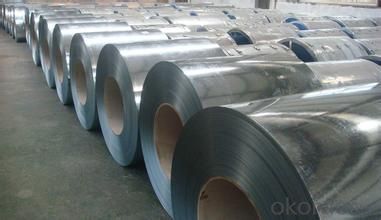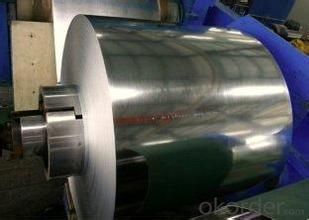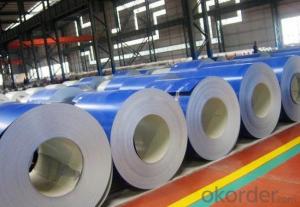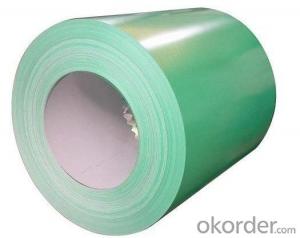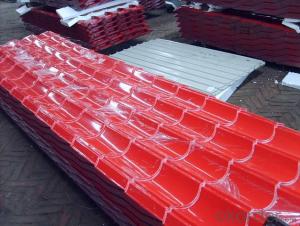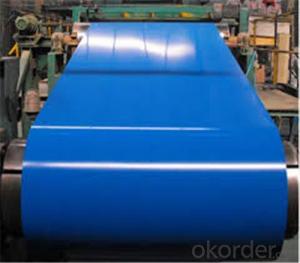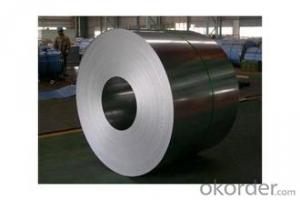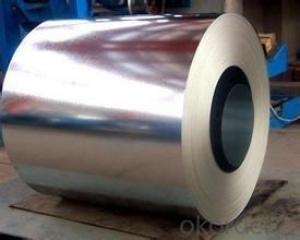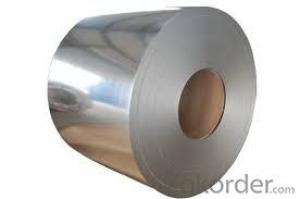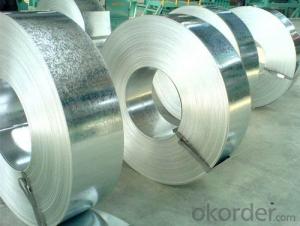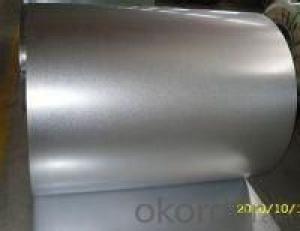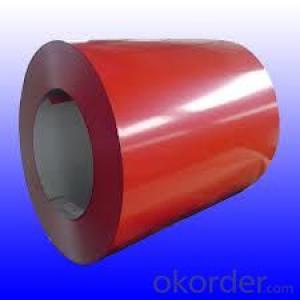Excellent Hot-Dip Galvanized/ Aluzinc Steel in China
- Loading Port:
- Tianjin
- Payment Terms:
- TT OR LC
- Min Order Qty:
- 30 m.t.
- Supply Capability:
- 5000000 m.t./month
OKorder Service Pledge
OKorder Financial Service
You Might Also Like
Hot-dip galvanized steel coils are available with a pure zinc coating through the hot-dip galvanizing process. It offers the economy, strength and formability of steel combined with the corrosion resistance of zinc. The hot-dip process is the process by which steel gets coated in layers of zinc to protect against rust. It is especially useful for countless outdoor and industrial applications.
Description:
1.Mateials:SGCC,DX51D / DX52D /S250,280GD
2.Size:width:600-1250mm(900mm,1215mm,1250mm,1000mm the most common)
thickness:0.15-2.0mm
length:1000-6000mm,as your require
3.Zinc coating :60-180g( as required)
4.Coil id:508mm
5.Coil weight: 3-5MT(as required)
6. Surface:regular/mini/zero spangle, chromated, skin pass, dry etc.
Applications of our Galvalume Coil:
Galvalume Coil widely used for roofing products, It is also the ideal base material for Prepainted Steel Coil.
1. roofing
2. gutters
3. unexposed automotive parts
4. appliances
5. furniture
6. outdoor cabinetry
We can ensure that stable quality standards are maintained, strictly meeting both market requirements and customers’ expectations. Our products enjoy an excellent reputation and have been exported to Europe, South-America, the Middle-East, Southeast-Asia, Africa and Russia etc.. We sincerely hope to establish good and long-term business relationship with your esteemed company.
- Q: What are the benefits of using coated steel coils in roofing applications?
- Using coated steel coils in roofing applications offers several advantages. Firstly, the steel coils are highly durable and provide excellent resistance against corrosion. The coatings act as a barrier, protecting the metal from moisture, chemicals, and harsh weather conditions. This ensures that the roofing system remains intact and functional for a long time, reducing the need for frequent repairs or replacements. Secondly, coated steel coils offer superior strength and structural integrity. Steel is known for its high tensile strength, and when combined with the protective coating, it becomes even more resilient. This makes coated steel coils an ideal choice for roofing applications, as they can withstand heavy loads, extreme temperatures, and strong winds without compromising the structure's integrity. Additionally, coated steel coils are lightweight, making them easy to handle and install. This saves time and effort during the roofing process and reduces the overall weight of the structure, minimizing stress on the building's foundation. Furthermore, coated steel coils come in a variety of colors and finishes, allowing for greater design flexibility. Architects and homeowners can choose from a wide range of options to enhance the building's aesthetics. The coatings also provide enhanced UV resistance, preventing color fading and ensuring the roofing system maintains its appearance over time. Lastly, using coated steel coils in roofing applications is an environmentally friendly choice. Steel is highly recyclable, and the coatings used on the coils can be formulated to be environmentally friendly as well. This reduces the carbon footprint associated with construction and promotes sustainability. In conclusion, the benefits of using coated steel coils in roofing applications include durability, strength, lightweight, design flexibility, and environmental sustainability. These advantages make coated steel coils a reliable and cost-effective choice for any roofing project.
- Q: What is the role of steel coils in the production of storage shelves?
- Steel coils play a crucial role in the production of storage shelves as they are used as the primary material to create the structural components of the shelves. These coils are flattened, cut, and formed into various shapes and sizes to construct the frames, supports, and shelves themselves. The durability and strength of steel coils ensure that the storage shelves can withstand heavy loads and provide long-lasting storage solutions.
- Q: How are steel coils used in the manufacturing of agricultural sprayers?
- Steel coils are used in the manufacturing of agricultural sprayers as they are shaped and formed into the structure of the sprayer, providing strength, durability, and stability. The coils are often used as the main frame or structural components of the sprayers, ensuring that they can withstand the harsh conditions and heavy loads involved in agricultural applications.
- Q: What are the common defects found in steel coils?
- Some common defects found in steel coils include surface defects such as scratches, pits, or dents, as well as edge defects like burrs or cracks. Other defects can include coil set or crossbow, which refers to the shape of the coil being out of alignment or having a curved shape. Additionally, defects such as oil or rust stains, laminations, or variations in thickness can also be found in steel coils.
- Q: Yes, I understand it can weaken steel greatly. But can it MELT steel? (key word: melt)
- The okorder /.. A flame from a wick burning kerosene demonstrates incomplete burning, hence sooty, yellow and a lower temperature flame like a candle. Kerosene in a cup or puddle only burns while it is hot enough to give off vapor. The vapor is all that is burning. It is not very hot, as it is not the right mixture with air. It may not even give off enough heat to keep the kerosene itself hot enough to keep burning. A kero blow torch flame might be typically 1100-1300°C but parts can reach 1760°C or more in some cases.
- Q: What is the accuracy of steel tape inspection?
- For example, you measure the length of a steel tape by 12.5 millimeters, 12 of which can be measured on a steel tape measure, and 0.5 you read. So the accuracy is millimeters.
- Q: What are the different methods of protecting steel coils from corrosion?
- There are several methods for protecting steel coils from corrosion. One common method is applying a protective coating, such as zinc or epoxy, which acts as a barrier between the steel surface and corrosive elements. Another approach is using corrosion inhibitors, which are chemicals that can be added to the storage environment or applied directly to the steel to reduce the rate of corrosion. Additionally, proper storage conditions, such as controlling humidity levels and preventing exposure to moisture and chemicals, can also help protect steel coils from corrosion.
- Q: Steel Strings on your guitar or nylons? Why?
- I love steel strings on MY guitar because the brand of strings and the type of guitar I have makes the strings softer on my fingers than other people's Steel Stringed guitars. Nylon sounds weird to me.
- Q: How can I owe a Pre-engineered Steel Building?
- You just have to do small efforts for owing a steel building: Firstly you have to finalize a steel building company for construction work. After finalizing the steel building company, the next step is the paperwork - the agreements and contracts. Some steel building companies may also ask for a verbal approval for the factories to get the work started.
- Q: steel welding with ms steel iron
- Welding austenitic stainless steels to carbon and low alloy steels are established methods in the process and construction industries. Dissimilar metal welds involving stainless steels can be done using most full fusion weld methods, including TIG (Tungsten Inert Gas) and MIG (Metal Inert Gas). Weld procedures using filler (consumable) enable better control of joint corrosion resistance and mechanical properties. In selecting the weld filler, the joint is considered as being stainless, rather than the carbon steel. Over-alloyed fillers are used to avoid dilution of the alloying elements in the fusion zone of the parent stainless steel.
Send your message to us
Excellent Hot-Dip Galvanized/ Aluzinc Steel in China
- Loading Port:
- Tianjin
- Payment Terms:
- TT OR LC
- Min Order Qty:
- 30 m.t.
- Supply Capability:
- 5000000 m.t./month
OKorder Service Pledge
OKorder Financial Service
Similar products
Hot products
Hot Searches
Related keywords
